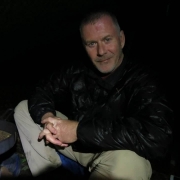How to Have a Killer Retirement: 3 Principles for “Writing Your Own Script” | Healthy Aging Series: Part 18
I was sitting at a McDonald’s a few years ago and overheard a conversation between two men. Both men were in their early 60’s. I recall that one of them had already retired and he was trying to convince the other man to retire. His argument was that when you retire, your time is your own.
It’s interesting the way we are programmed about retirement. Work all your adult life until you turn sixty-five. Stop working. Live on your retirement income. End of story. That’s how it’s written. I get it. I can’t imagine working a job when I’m eighty or ninety. Or maybe I can. I met with a couple this morning. They’re owners of an agency called, “The Center for Conscious Aging.” Chris, who is seventy-three, has a mother who is ninety-three. She retired at eighty-seven. Chris is still working. Maybe, that’s not how it’s written.
My brother-in-law is eighty-four and still working. People continue to work into their seventies and eighties for several reasons. They want to make a difference. They need to supplement their retirement income. They need to stay connected with people. They simple love what they do. Lots of reason. There is no right way or wrong way to spend your senior years. Retirement is a social construct. It’s a pre-written script that many, many individuals during retirement age refuse to follow. Maybe, we can write our own script for retirement.
I’ve been reading a lot of books on aging and one phrase that has come up a few times is: “You need to write your own script.” Maybe the word ‘narrative’ resonates with people today.
Creating Your Own Script/Narrative.
The beauty of the retirement years is you get to decide what they look like. They are YOUR retirement years. Not mine. Not your children’s. Not your co-worker’s. Not your wife’s. You only get one crack at your senior years. Maybe thirty or thirty-five years if you’ve taken care of yourself and if you’re lucky. You get the chance to craft a life for yourself that will bring you happiness and contentment. Sure, there are limits to what you can do, limits to what your narrative will look like, but still, regardless of your limits, you can craft a life that suits you. You can write a script that mirrors what you value and what you find important.
How does one write their own script?
For some of you reading this, it’s too soon to start writing you script. You’re in your forties and fifties. The last thing you’re thinking about is retirement. But it’s not too soon to start dreaming about your future self, about what your life might look like in your seventies and eighties.
But if you’re in your late fifties or early sixties, it’s time to start, and here are some principles that I have used to write my script.
First Principle: What Gives Me Meaning and Purpose in Life?
My script reflects my desire to make a difference in this world. I can’t imagine not doing what I do. I get up each week, knowing that I help people face and solve their problems. It’s tiresome at times, but a good kind of tiresome. I work with a teen that is struggling with gender identity issues. I work with an elderly woman that lost her husband. I work with a young man that has lost his way. And a woman that struggles with her life choices. My script involves working as long as I’m able to listen and express care and concern. What gives you meaning and purpose? Making furniture? Volunteering at the local homeless shelter? Crafting? Being a mentor to young people in your church, synagogue, or neighborhood? Being a Friendly Visitor? Whatever it is, write those things into your script.
Second Principle: What do I value?
My Script reflects the relationships that I value. I value my relationship with my wife. No surprise there! I value my relationship with my sons, with my grandchildren, and with my friends. My script reflects the people that I value. My script has me home most of the time with my wife. My script has me spending some evenings during the month with my son, Derrick, and every three months with my other son, Trevor, and my two granddaughters, Sophie and Harper. My script has me hiking with my good friend, Sam, and a couple of young men that challenge the hell out of me, Chris and Stacy. I have written people into my script.
Third Principle: Taking care of Myself.
My script reflects the importance of taking care of myself. I remember visiting my father after a very long and grueling backpacking trip in the Sierra Mountains. His response was, “Kimberly (the name he called me), that doesn’t seem like fun to me!” I said, “We’ll Dad, it wasn’t fun. That’s not why I do it!” His script didn’t involve challenging himself, mentally and physically that way. Mine did.
My script involves hiking, biking, and lifting weights. It involves limiting my sugar intake. Watching my weight. Reading self-help books. It involves watching very stupid movies like Sharknado and watching funny series like “What we do in the Shadows.”
My script involves spending time with my extended family. It involves walking every Thursday with my friend Gordon. It involves having some good collegial friends that I can call and consult with about tough cases.
My script involves what we call, self-care. I tell the newer therapists that I supervise, if they want to continue doing what they are doing for the next 25 or 30 years, they need to take care of themselves. How are they going to take care of others, their family, and friends, and their clients, if they are spent? I have written Self-Care into my script. Maybe this is where I should have started.
Writing your own script doesn’t mean that you are literally writing a script. What it means is, you are living the life that you want regardless of what others say. It means following your own compass in your senior years, your True North.
I love the movie, “Citizen Kane.” The character played by Orson Welles, is on his deathbed, and with his last breath says, “Rosebud.” The reporter that witnessed his death spends the rest of movie trying to figure out, who was Rosebud. I won’t spoil the ending, other than to say that Rosebud was important to him. His final word reflected the script that he had been living.
What will you say on your deathbed? What is your Rosebud? Are you living a script that you’ve written?
I’m not sure what my last words will be in my script. I haven’t written them yet. Maybe they’ll be, “Game over, man!” (I love the movie Aliens) Or, maybe I’ll write something else. Maybe I’ll write what McMurtry wrote into Gus McCrae’s last words, into his script in Lonesome Dove. “It’s been quite a party, ain’t it, Woodrow.”
This is part eighteen in the Healthy Aging Series, written by Mark Neese, LCSW, BCBA. To see more entries in this series, click here.













